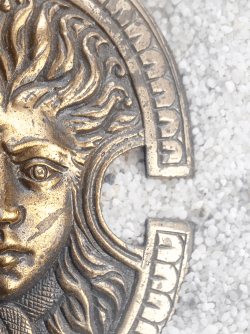Social Influence and God’s Wisdom
Can people really “self-regulate”?
In 2016, American psychiatrist and distinguished professor at Johns Hopkins University Dr. Paul McHugh wrote an article for the Wall Street Journal titled “A New Semester, a New Approach to Campus Turmoil.” Though he may not have realized it, Dr. McHugh touched on an important biblical principle as he covered the story of a Yale professor coming under heavy criticism for what some considered racially provocative comments.
Dr. McHugh referred to an incident at Yale on November 9, 2015, that turned into a student demonstration. The spark that ignited the demonstration was an outburst by a group of students who believed that an open email from Professor Erika Christakis was racially denigrating. In her email, she had suggested that Yale’s “recent admonishments about Halloween costumes, cultural appropriation and racial insensitivity perhaps were unnecessary, since young adults are capable of deciding for themselves what to wear for Halloween and might even learn from being a little bit obnoxious” (January 10, 2016).
Students had a public verbal confrontation with her husband, Professor Nicholas Christakis, which turned into a mob scene as the students cursed at him. As the scenario played out on video for the entire online world to see, many found it hard to avoid noticing some irony, considering that Professor Christakis had co-authored a book in 2009 titled, Connected: The Surprising Power of Our Social Networks and How They Shape Our Lives.
In that book, he showed how thoughts and behaviors that we think are determined by our own reasoning are actually shaped—and not always for our good—by people with whom we socially interact, even those who are not in our immediate circle of friends. He used studies—including a renowned project from Framingham, Massachusetts, involving more than 5,000 individuals—to show that the “social cluster” of relationships that forms the fabric of our life profoundly influences thinking and behavior. In other words, he found that there was a social “contagion” that happens whereby our “norms” are cemented in us through the influence of those around us. Specifically, he asserted that we are influenced not only by our friends, but also the friends of our friends.
Understanding this principle directs the approach toward helping people caught up in alcohol or drug addiction, for example. Dr. McHugh wrote that he teaches psychiatrists to manage alcoholic patients by encouraging them to attend 90 meetings of Alcoholics Anonymous in 90 days, in order to help them internalize abstinence from alcohol as a norm.
The Company We Keep
For students of the Bible, this is not new wisdom! For example, Psalm 1:1 says, “Blessed is the man who walks not in the counsel of the ungodly, nor stands in the path of sinners, nor sits in the seat of the scornful.” In Proverbs 13:20, we read, “He who walks with wise men will be wise, but the companion of fools will be destroyed.” And we are told in the New Testament, “Do not be deceived: ‘Evil company corrupts good habits’” (1 Corinthians 15:33).
Analysts tell us that human behavior changes to adapt to the social atmosphere we inhabit. Whether we realize it or not, we are exposed to “social contagion” via the people with whom we interact. And since the people who are around those people influence them in turn, the friends of our friends likewise ultimately influence us.
The lesson is clear—social influence has the power to affect the course of a person’s life, for good or evil. Do we carefully consider the company we keep, and the priorities thereof? Can people really “self-regulate” their behavior?
Be part of a culture with God-ordained ways of thinking and acting. Request a free copy of What Is a True Christian? from the Regional Office nearest you, listed on page 4 of this magazine, or read it online at TomorrowsWorld.org.






